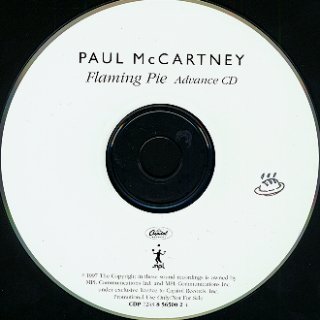Major copyright case to test First Sale Doctrine, possibly shrinkwrap EULAs

By Timothy B. Lee | Published: August 15, 2007 - 10:23AM CT
The Electronic Frontier Foundation has taken up the case of a California man who has been sued by Universal Music Group for selling promotional CDs. Like other record labels, UMG distributes free CDs to radio stations and music reviewers in the hopes of drumming up publicity. The CDs come stamped with the label "promotional copy, not for sale." Based on this notice and the fact that the copies were given away rather than sold, the labels argue that these "promo CDs" remain the property of the labels and are only leased to recipients for their personal use.
California resident Troy Augustino makes a living selling various merchandise, including promo CDs, on eBay. UMG sued him in May for copyright infringement, claiming that it had merely licensed the CDs rather than transferring ownership and that Augustino was therefore committing copyright infringement by reselling them.
The fundamental issue in the case is the First Sale Doctrine, which says that when a copyright holder sells a copy of a CD, the new owner of the CD is entitled to give or sell that copy to someone else without getting the copyright holder's permission. This is the principle that makes libraries and used book stores possible. It was first articulated by the Supreme Court in 1908 and has since been codified into statute.
Not surprisingly, copyright holders don't like this provision of copyright law, because used copies of their works compete with new copies. In May, we reported on state laws aimed at undermining the First Sale Doctrine by curtailing the sale of used CDs.
Attempts to circumvent the first sale principle using license agreements are not unique to UMG. The practice is especially common among software firms, which routinely distribute their products with a shrinkwrap license. Such end-user license agreements typically state that the software has not been sold to users but has only been licensed for the customer's personal use, subject to a variety of conditions spelled out in the EULA. Software firms contend that because their software is merely licensed to users rather than sold, the First Sale Doctrine does not apply.
Such shrinkwrap licenses have generated considerable controversy, and some courts have rejected them outright. For example, in a 2001 case, a California judge ruled that Adobe's EULA did not apply to a California businessman who bought bundled Adobe software and resold the individual components. In that case, the judge held that despite Adobe's contention that it merely licensed its software, "the circumstances surrounding the transaction strongly suggest that the transaction is in fact a sale rather than a license."
UMG's lawsuit against Augustino will test the boundaries of the First Sale Doctrine. UMG may argue that the First Sale Doctrine only applies to sales of copyrighted materials and not to CDs it gives away. But EFF attorney Fred von Lohmann tells Ars that the courts have applied the First Sale Doctrine to gifts in the past. For example, he points to a 1984 case in which Disney tried to prevent the auction of film cells that had been given to a former employee. The court found that the First Sale Doctrine applied and allowed the auction to go forward.
In addition to responding to UMG's charges, EFF has countersued UMG for sending "takedown" letters to eBay claiming that Augustino's CDs infringed copyright. In a post on EFF's blog, von Lohmann charges that UMG has been "harassing a number of promo CD merchants, sending bogus DMCA takedown notices to eBay, getting auctions suspended, and accounts terminated." Victory in the case would make it easier for other eBay sellers to resist UMG's efforts to shut them down.
Beyond its effects on the used music market, the case could have important implications for the software industry. If the courts holds that the "not for sale" notice stamped on a CD is not an enforceable contract, it will cast further doubt on the enforceability of shrinkwrap EULAs.